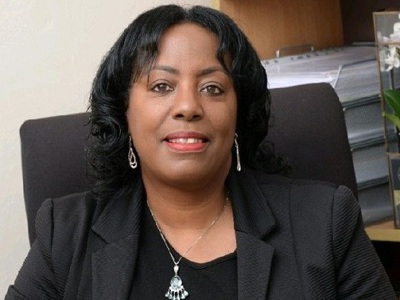
“Watershed” European Court of Human Rights ruling that gay man from Iran cannot be deported from Switzerland
A ruling by the European Court of Human Rights (ECtHR) that a gay man cannot be deported from Switzerland to Iran has been welcomed by Leigh Day immigration team head, Jacqueline McKenzie, who represented African Rainbow Family and Stonewall in the case.
Posted on 13 November 2024
It is a watershed judgment that puts an end to the reasoning that it is safe to return gay men who are discreet about their sexuality, says Jacqueline. “Discretion reasoning” has been widely applied in similar cases in the UK courts.
The judgment given in M.I v Switzerland Application no.56390/21 on 12 November that the gay man in Switzerland should not be deported to Iran will apply to all 46 countries in the Council of Europe, including the UK, when determining protection claims from gay applicants seeking sanctuary in Council of Europe Member States.
The judgment acknowledges the opinion of African Rainbow Family and Stonewall who had their voices heard by the ECtHR after they were given intervenor status in the case.
The campaign groups told the ECtHR of the real risk of torture to a gay men returning to Iran. The UK courts have accepted since 2005 there is a real risk of persecution and ill-treatment on return to the country.
They asked the court to consider MI’s view that he would be at risk in Iran because he would not be able to conform to the gender-sex role stereotype that prevails in that country and it would become clear that he is gay, putting himself at risk.
They highlighted a tendency towards discriminatory decisions towards gay applicants to the ECtHR when “discretion reasoning” is applied.
The unanimous judgment declared that “in view of the domestic courts’ failure to sufficiently assess the risk of ill‑treatment for the applicant as a homosexual person in Iran or whether State protection against ill‑treatment from non‑State actors was available in Iran, his return to Iran without a fresh assessment of those aspects of his case would breach Article 3 of the Convention.” (para 57).
The Court acknowledged that the parties agreed that the applicant is homosexual, that this is a fundamental part of the applicant’s identity, and that homosexuals in Iran are at risk from both State and non‑State actors. With this in mind, the Court addressed and confronted the premise of discretion – that the applicant could avoid persecution by concealment or exercising ‘restraint.’ The Court found fault in the Swiss authorities’ “view that it was unlikely that his sexual orientation would come to the knowledge of the Iranian authorities or population and that he therefore faced no real risk of ill‑treatment” (para 55) – a position rooted in the assumption that the applicant could sufficiently conceal his or her identity in order to remain safe on his return.
Here, the Court found that “whether or not the applicant’s sexual orientation is currently known to the Iranian authorities, family members or the population, it could be discovered if he were to be removed to Iran” (para 50). This raised the question of whether the Swiss authorities had sufficiently addressed “whether the Iranian authorities would be able and willing to provide the applicant with the necessary protection against ill‑treatment on grounds of his sexual orientation at the hands of non‑State actors” (para 55).
The Court found that the Swiss authorities were wrong to “not carry out an assessment of the availability of State protection against harm at the hands of non‑State actors” under the assumption that “it was unlikely that his sexual orientation would come to the knowledge of the Iranian authorities or population” by virtue of the application own efforts of concealment and discretion. (para 55).
Leigh Day head of immigration and asylum Jacqueline McKenzie said:
“I am delighted for not just my clients, Stonewall and African Rainbow Family, but for all gay people who continue to face the threat of removal to several countries where gay sex is prohibited by law and penal codes, and where in some instances, punishable by death, on the basis that they can be discreet about their sexuality.
“The leading UK case, HJ Iran kept the discretion test to refuse asylum to those who are discreet for personal or social reasons alone. This is an absurd position and as asylum and Article 3 protection claim standards are the same in the UK - then para 55 of MI v Switzerland must apply to get rid of this conduct limb of HJ (Iran). This is a watershed ruling that puts an end to the reasoning that it is safe to return gay men who are discreet about their sexuality to countries where they would be in danger is their sexuality were to be discovered.”
Jacqueline instructed Dr S Chelvan, head of immigration and public law, and Haydee Dijkstal, head of international law, at 33 Bedford Row Chambers.
Dr Chelvan said:
“This is a landmark judgment to finally end discretion reasoning disproportionately applied in the United Kingdom to gay applicants.”




